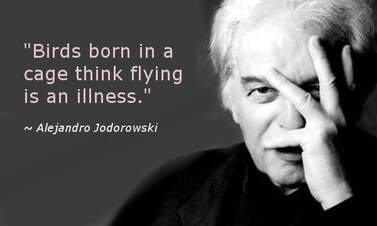| juliajubilada = julia retired |
|
Rethinking
|
How often have you asked yourself:
“Why did I do that?”
“Why did I let that happen to me?”
“Why did I put up with it?”
“Why did I give that man* my love, my body, my hard-earned money…..?”
“Why did I act out of fear that he/they would think I was uptight, prejudiced, mad, undesirable, possessive, a pricktease..."
And when our gifts were neither appreciated nor reciprocated, our trust abused or our attempts to please repudiated:
“Why did I/do I feel worthless, stupid, dirty, damaged and ashamed?”
*man, or whatever category or group in society your oppressor (external & internal), looks to for concepts of normal, attractive, sane, common sense, one of us, political correctness....
Can the idea of internalised oppression help us to understand who we are and who we want to be, and take responsibility for the choices we made, and continue to make, in our lives? I've started to explore my own shameful stories, together with those of other women across divisions of race, class and age. We're currently experimenting with ways to frame these stories in terms of the structural inequalities that support oppressive ideas and practices and Zed Xaba's focus on the need to notice and name our own experiences of internalised oppression. She quotes Carl Jung, “Until you make the unconscious conscious, it will direct your life and you will call it fate”. To name our experience we also need to look at questions of language and identity. If you'd like share work in progress (yours or mine) on this theme, please email [email protected]. I've started a page of RIOT conversations in the hope of building a dialogue on questions raised here. Meanwhile, you can find some material for analysis in "Free School Camp", on my poetry page !
“Why did I do that?”
“Why did I let that happen to me?”
“Why did I put up with it?”
“Why did I give that man* my love, my body, my hard-earned money…..?”
“Why did I act out of fear that he/they would think I was uptight, prejudiced, mad, undesirable, possessive, a pricktease..."
And when our gifts were neither appreciated nor reciprocated, our trust abused or our attempts to please repudiated:
“Why did I/do I feel worthless, stupid, dirty, damaged and ashamed?”
*man, or whatever category or group in society your oppressor (external & internal), looks to for concepts of normal, attractive, sane, common sense, one of us, political correctness....
Can the idea of internalised oppression help us to understand who we are and who we want to be, and take responsibility for the choices we made, and continue to make, in our lives? I've started to explore my own shameful stories, together with those of other women across divisions of race, class and age. We're currently experimenting with ways to frame these stories in terms of the structural inequalities that support oppressive ideas and practices and Zed Xaba's focus on the need to notice and name our own experiences of internalised oppression. She quotes Carl Jung, “Until you make the unconscious conscious, it will direct your life and you will call it fate”. To name our experience we also need to look at questions of language and identity. If you'd like share work in progress (yours or mine) on this theme, please email [email protected]. I've started a page of RIOT conversations in the hope of building a dialogue on questions raised here. Meanwhile, you can find some material for analysis in "Free School Camp", on my poetry page !


